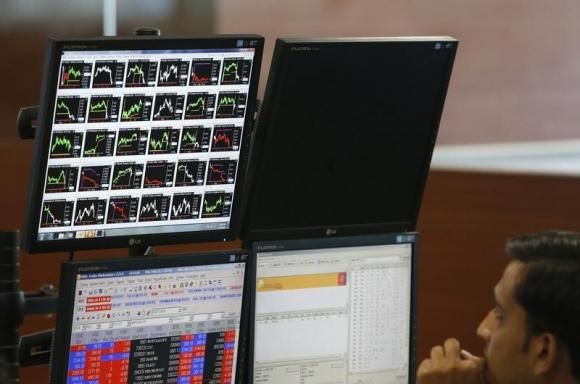 The Reserve Bank of India is reportedly considering permitting foreign institutional investors (FII) and commercial banks to trade on Indian commodity exchanges on the suggestion of a committee that had gone into the functioning of the commodity markets.
The Reserve Bank of India is reportedly considering permitting foreign institutional investors (FII) and commercial banks to trade on Indian commodity exchanges on the suggestion of a committee that had gone into the functioning of the commodity markets.
This panel, headed by D S Kolamkar, a senior economic advisor in the finance ministry, had suggested that the present high cost of transactions in commodities futures could be reduced if banks and FIIs were allowed to participate in this market.
Their involvement is also expected to help improve the turnover of the commodity exchanges, which has almost halved since April due to the commodity transaction tax and tighter trading norms introduced after the Rs 5,600-crore (Rs 56 billion) National Spot Exchange Ltd (NSEL) scam.
Commodity exchanges have been demanding participation of foreign and domestic financial institutions for a long time, well before their volumes began to sag.
These institutions are already trading on Indian stock exchanges and some of them have also been active in the commodity markets, though indirectly through their proxies.
The banks have, however, been barred from transacting in goods under the Banking Regulation Act.
Though the United Progressive Alliance government had earlier tried to amend the banking law as well as the Forward Contracts (Regulation) Act (FCRA) to let banks and FIIs operate on the commodity exchanges, it eventually didn't happen.
However, the opening up of the commodity exchanges to big market players with huge resources at their disposal has pros as well as cons that need to be weighed carefully.
On the positive side, it can bring more liquidity to the commodity market, improve the sentiment and build confidence among traders.
Besides, it can lead to better price discovery, especially of internationally traded goods for the benefit of importers and exporters.
Moreover, the proposal has been endorsed by the Indian commodity market regulator, the Forward Markets Commission (FMC), as well.
On the downside, however, the move is fraught with some dangers that cannot be disregarded.
The biggest fear is that the FIIs, which have the ability to swing the stock markets as they like because of their copious funds and deep pockets, will be able to do so doubly in the even thinner commodity markets.
They may also influence domestic spot prices, especially those of agricultural commodities, where the market currently particularly lacks depth.
Some well-judged counterbalances from domestic institutions and effective monitoring and regulation are, therefore, necessary to stave off hijacking of the local commodity markets by the foreign players.
The present regulatory mechanism under a weak FMC may prove inadequate to rein in the global financial giants.
Although the functioning of the FMC has improved considerably after shifting it from the consumer affairs department to the finance ministry, it still remains an appendage of the ministry without sufficient administrative or financial autonomy.
It must be revamped and strengthened further with powers similar to those of the Securities and Exchange Board of India (Sebi) to make it truly effective.
The best way to do so would be to revive the FCRA Bill and expedite its passage by Parliament.
This Bill provides for greater empowerment of the FMC.
Before granting permission to FIIs to set up shop on commodity exchanges, therefore, it will be necessary to overhaul the regulatory mechanism.











